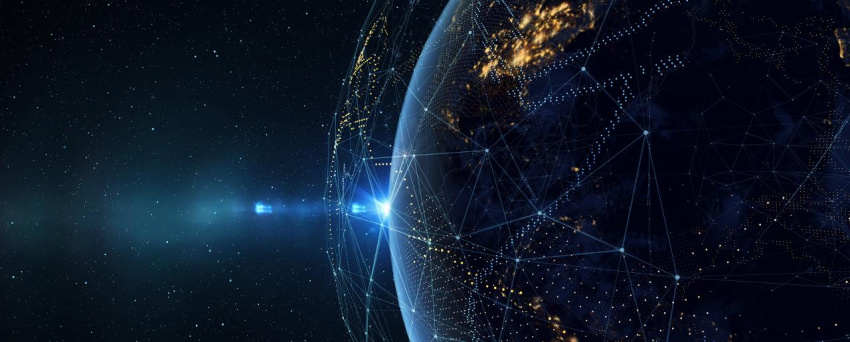A Robot President? Law and International Relations in the Age of AI

Today, in our world, there are some who contemplate treating robots as if they were humans. Currently, robots are seen as lifeless objects that are owned by humans. However, as robots become more intelligent in the future, we may need to reconsider this notion. Is it truly necessary to grant rights to robots? The role of artificial intelligence in our lives is expanding day by day. The origins of this technology can be traced back to the 1950s when the University of Dartmouth in the United States conducted a research project on artificial intelligence. The work of individuals such as Allen Newell, Herbert E. Simon, and Alan Turing also played a significant role in the development of artificial intelligence. It was Turing who introduced the famous Turing test in the 1950s, which predicted the emergence of smart cars. However, artificial intelligence did not gain global attention until IBM introduced the Deep Blue supercomputer. While artificial intelligence algorithms have been utilized in large data centers and computers for many years, their presence in consumer electronics is a more recent development. Turing raised the question in the 1950s: Can machines think?
The reality of artificial intelligence today is what it has achieved thus far and what it could potentially achieve. It is indeed fascinating, but it is still far from the depiction of artificial intelligence in science fiction. In this article, I aim to specifically address the impact of artificial intelligence on the future in the fields of law and international relations. Artificial intelligence initiatives and applications are increasingly gaining attention in the realms of international security and relations. Of all human behaviors, politics is perhaps the most challenging to automate. Politics inherently embodies complexity, reflecting the intricate nature of human behavior on both an individual and social level. This complexity becomes even more apparent within the context of international relations.
In the not-too-distant future, when artificial intelligence reaches human-level capabilities, it is unlikely to be categorized as general artificial intelligence. Even if progress in this field is faster than expected, there will be substantial resistance towards delegating responsibility to machines. This resistance is already visible today, especially concerning topics related to drones and robotic weapons systems. Therefore, it is incredibly difficult to foresee a world in which machines make political decisions without a complete transformation into an intelligent world of the future.
Around ten years ago, artificial intelligence was limited to specialized and technical applications that only experts could comprehend. However, today we can confidently state that artificial intelligence has become an integral part of our daily lives as humans. Can we envision a future with a robotic president or prime minister? Currently, this possibility remains uncertain. Nevertheless, this does not mean that artificial intelligence will have no significant impact on politics and international relations. This impact will be manifested through changes in decision-making methods and the information available to decision-makers, as long as artificial intelligence does not become the sole decision-maker. Accurately considering the application of artificial intelligence in international relations involves understanding the structures supported by decision-makers and the speed at which decisions are made.
We can conclude that artificial intelligence systems will not replace humans in high-level decision-making positions. However, artificial intelligence is increasingly becoming a part of the environment in which human decision-makers operate. This evolution presents both remarkable opportunities and significant risks. Therefore, it is vital to examine the potential impacts early on. The use of artificial intelligence in legal services is rapidly growing, with new systems based on natural language processing gradually taking over certain tasks performed by lawyers. Experts and artificial intelligence specialists predict that lawyers in powerful and developed countries may lose their jobs within the next decade as artificial intelligence software can now draft detailed contracts, analyze existing legal documents, and predict court rulings.
Artificial intelligence may eventually be capable of performing all operational or cognitive tasks currently reliant on human intelligence. However, the development of such AI could take decades or even centuries. Consequently, present analysts and politicians should focus on the tasks that AI can undertake in the short term. These tasks heavily depend on the capabilities of artificial intelligence. For example, machines are proficient at processing vast amounts of data quickly and can provide more information than the human mind. In terms of legislation, it is noteworthy that the United States Congress and the European Parliament are both examining legal aspects related to artificial intelligence. In Asia, the State Council is also reviewing new regulations concerning legal discussions surrounding artificial intelligence, particularly due to China's significant investments in this field. Thus, the prevalent trend in most legislatures is to establish laws that align with the requirements of automated decision-making systems. However, countries may differ in their attitudes towards this issue based on their political systems, potentially leading to divergent laws pertaining to artificial intelligence in the future.
Upon reviewing the issues discussed, it can be concluded that legal systems worldwide are just beginning to grapple with the implications of independent artificial intelligence. Undoubtedly, artificial intelligence will influence global legal systems, just as it has impacted other industries. In the current climate, any legal system that takes prompt action in this direction can become a leader in influencing similar practices worldwide. The custodians of Iran's legal system should consider this matter, especially given Iran's history as a pioneering country in this field.
* Mohammad Mehdi Seyed Nasseri is a lecturer and researcher of public international law.

